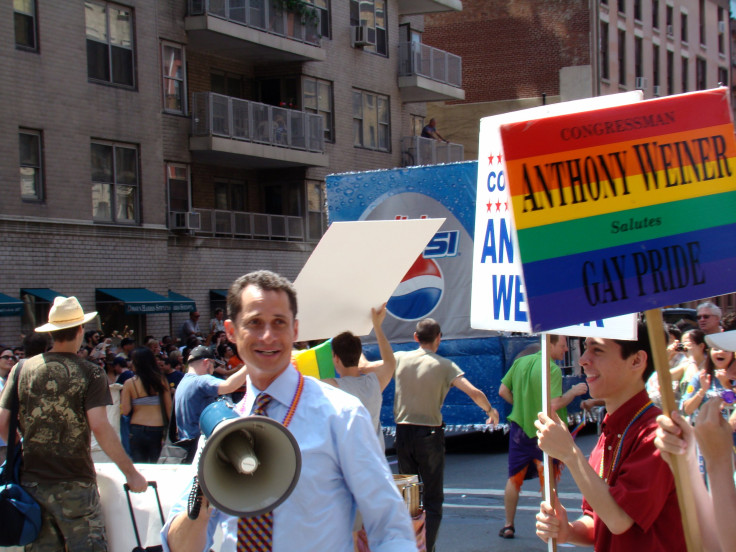New York Mayoral Candidate Anthony Weiner Supporting Single Payer Health Care

In his comeback to politics, former congressman Anthony Weiner promises to "make New York City the single-payer laboratory in the country" if elected mayor -- hoping, like others in progressive bastions of the country, to prove the concept.
The democratic mayoral candidate on Thursday described a detailed plan to institute a Medicare-like system of health care to cover city workers, retirees, and uninsured immigrants not covered under the Affordable Care Act known as "Obamacare."
Weiner said his plan would slow the rise of $15.5 billion in municipal spending on health care while saving money for other expenditures by reducing the profit and influence of private insurance companies on the local market. To make the plan fiscally viable, Weiner proposed requiring city workers and retirees to contribute to their insurance premiums, at a rate of 15 percent for non-smokers and 25 percent for smokers. Under the present system, city workers pay nothing toward their health insurance, while others in the city go uninsured.
Weiner would also expect as many as a half-million "undocumented immigrants" to pay into the system for health care, reducing unreimbursed emergency room expenditures for hospitals.
"This isn't about who manages health care," Weinder said. "This is about who manages the money in health care." Under the present system, city spending would soon rise by 40 percent from 2014 to 2017, enriching what is essentially a single-payer health care insurer anway. Under city law, the private insurer Emblem manages 95 percent of coverage for municipal workers, as a New York state board approves annual raises in the rates charged.
"Their job is to take in as much money as they can and pay out as little as they can," Weiner said. "The complexity and delays of private insurance processing are no accident -- they make money on the float."
However, the scheme might also involve services purchased by the city from a private vendor, just as Medicare outsources functions such as administration while still capping overhead costs to as low as 1.3 percent. Depending on the recommendations of a government task force to be created under the deputy major of health care innovation, Weinder said the city could also "take the whole thing in-house."
The mayoral candidate, who was forced to resign from Congress two years ago amid a social media sex scandal, said he would reorganize city agencies to better fit the model of Obamacare, while endeavoring to "keep more money in the city" -- such as by allowing prescriptions to be filled at local pharmacies rather than by the popular mail order option.
Depending on the recommendations of a government task force he would create under a deputy mayor of health care innovation, he said, city coverage might still be placed in the hands of a different insurance company under a more competitive scheme, or the city might outsource just the administration to an insurer, as Medicare does while keeping overhead as low as 1.3 percent. A third option he listed would be for the city "to take the whole thing in-house."
He said he would reorganize government agencies to seize opportunities presented by the Affordable Care Act, and have his health care innovation task force consider insurance terms that "keep more of the money in the city," like allowing prescriptions to be filled at local pharmacies rather than only by mail order, or using the city's development and investment capability to increase primary care at a hospital facing closure.
Weiner said the New York City health care coverage could eventually be offered to all residents of the state on the health care insurance exchange brought by Obamacare. However, the democrat would have to also win concessions from powerful labor unions, who might seek pay raises to offset city worker contributions to their health coverage.



























